How a Popular Miami Nightclub Spawned a Celeb Following—and Trio of Residential Towers
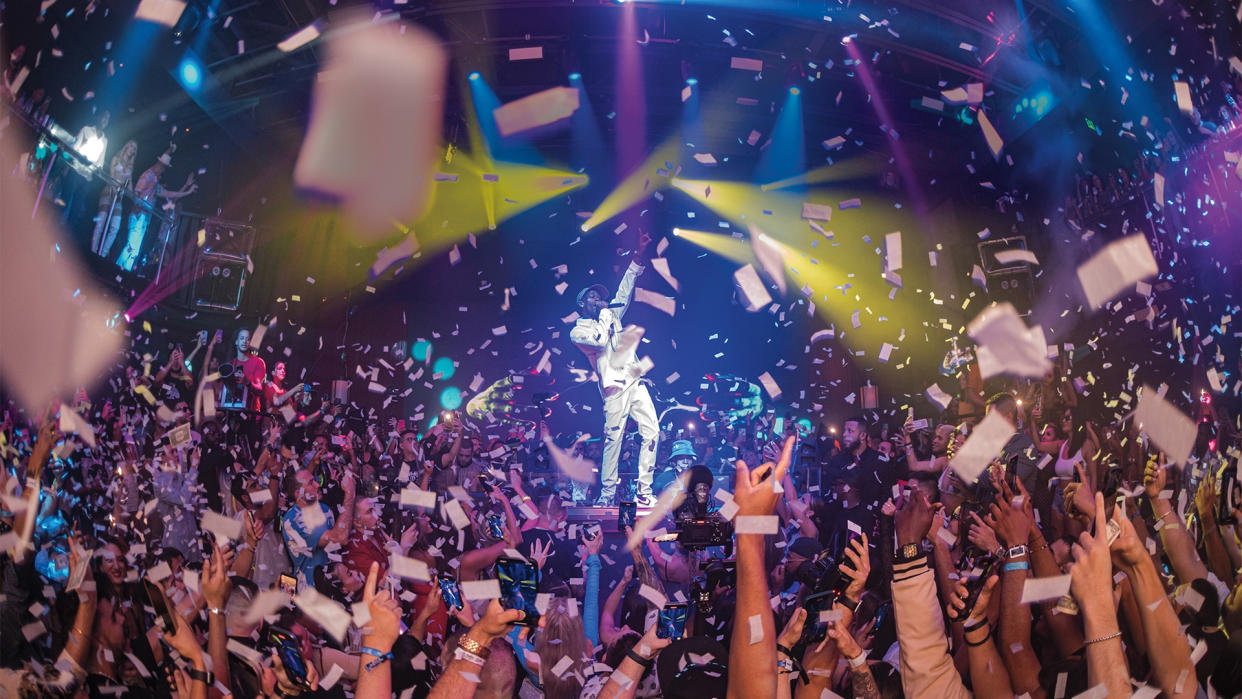
- Oops!Something went wrong.Please try again later.
It’s close to 3 a.m. on the Friday before Formula 1 weekend in Miami, and the nightclub known as E11even is heaving. At the owner’s table, just above the dance floor, managing partner Dennis DeGori is showering the crowd below with stacks of cash. “Make it rain,” he says, demonstrating the proper tossing technique so the bills scatter high and wide. Thousands of singles carpet the floor already.
Waitresses hoist magnums of Dom Pérignon, cutting a path through VIPs in the pit. These guests shelled out extravagantly for a prime spot in the club’s throbbing center. This weekend, the most coveted tables—which encircle an elevated stage, a dance floor, and the DJ booth—will require a minimum tab of $30,000 apiece for booze, food, and entertainment. Unlike at most venues, the big spenders here aren’t roped off along the periphery. “I flipped the usual formula,” DeGori says. “At E11even, everyone else is a spectator to the VIP experience.”
More from Robb Report
Scotland's Famed Gleneagles Hotel Teams Up With Grown Alchemist for New Facials and Massages
Architect Chad Oppenheim's Waterfront Mansion in Miami Just Hit the Market for $33 Million
A pair of acrobats suspended from ropes contort above the dance floor, their routine pausing the smoke-machined, laser-beamed, strobe-battered madness. Drones buzz around the room, filming everything for the post-party highlight reel.
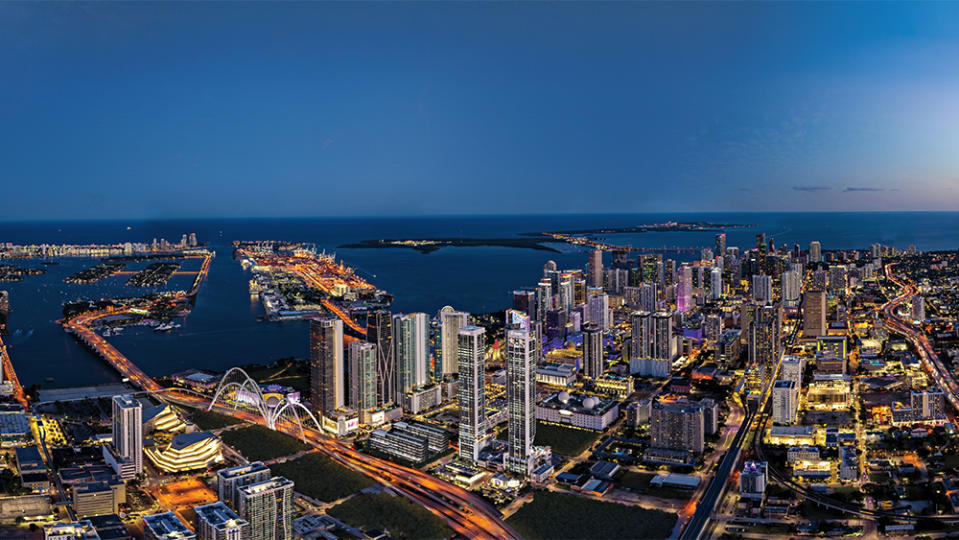
Just after 4 a.m., DJ Deadmau5—the electronic-dance-music (EDM) superstar who often sells out stadiums—begins his set, filling the 13,500-square-foot club with pulsing sound, the LED eyes of his signature mouse helmet glowing green. Large frosted bottles of E11even-brand vodka are crammed into ice buckets everywhere. Go-go dancers, clad only in race-car helmets and body paint applied to look like F1 driver uniforms, flank the DJ booth. Other young women in lingerie are gyrating on platforms throughout the room. In the middle of it all, a “massage girl” offers head rubs. Down in the pit, a bride-to-be celebrates with friends, flipping back her white veil.
The party rages on well past dawn, as it will the next night, when rapper Travis Scott headlines, and the night after that, when another star DJ, Tiësto, will whip the crowd into a frenzy. The club will earn millions in just three or four days. And night after night, long lines of hopefuls will wait hours to get in, paying anywhere from $350 to $100,000 for a table, depending on who’s performing—and the location of that table.
In the decade since it opened its doors in downtown Miami, E11even has transcended the space most nightclubs occupy to become a full-fledged phenomenon, with a cult following and vast global reach. In 2023, E11even-hosted parties popped up at the Cannes Film Festival and the Monte Carlo Grand Prix, exporting the club’s particular brand of unbridled excess as they’d done previously at seven Super Bowls and the 2018 World Cup, in Moscow. Recently, management has been scouting locations for new clubs in Tokyo, London, New York City, and Las Vegas. “We’ve had a ton of offers, but it has to be right,” DeGori says.
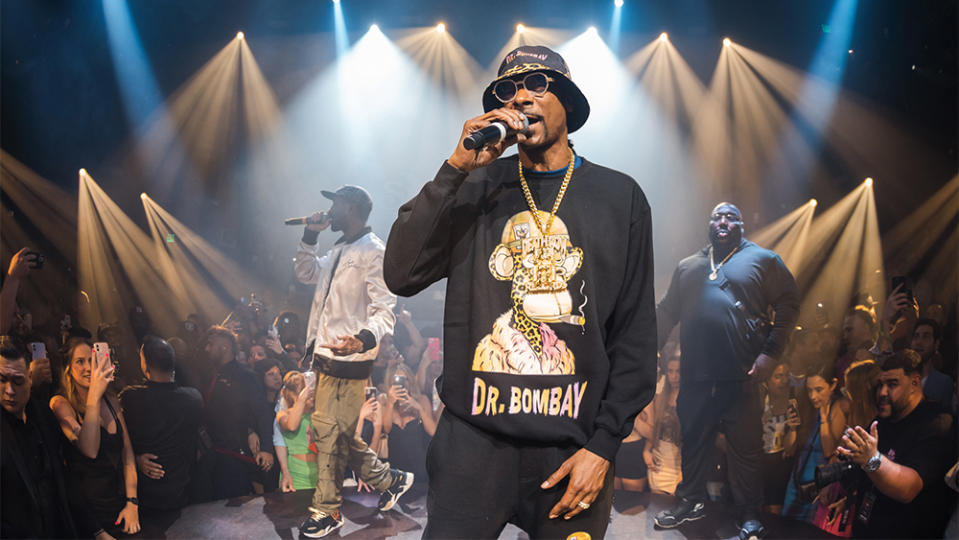
E11even is an unlikely sensation, mixing the risqué, somewhat tawdry, world of bachelor-party lap dances and dollar bills stuffed into G-strings with A-list musical acts and Cirque du Soleil–style theatrics, all packaged with plush gold banquettes and a bone-rattling sound system. It’s an oddly seamless mash-up of manic luxury and sexually charged hedonism, fueled by large-format bottles of Champagne, vodka, and tequila. “It’s many different things to many different people,” says DeGori. “To explain how it works together—you can’t do it.”
Over the years, E11even has spawned brand extensions in music and vodka and NFTs, in millions of dollars in merchandise—mostly $50 baseball hats—and in the billion-dollar real-estate developments rising on the lots around the club. The 699-foot, 65-story E11even Residences condo-hotel tower is under construction across the street and expected to open in two years, with interiors from N.Y.C. firm AvroKO. A 20,000-square-foot poolside day club will overlook E11even’s new rooftop restaurant, Giselle, a fitting showcase for chef Gustavo Zuluaga’s maximalist cooking. His more-is-definitely-more menu pairs toro-tartare cones, lobster thermidor, and Wagyu-beef tomahawk steaks with a thumping beat. A second, equally tall tower called E11even Residences Beyond will follow, connecting to the first by skybridge; a third is planned for just up the street.

E11even might be the first nightclub anywhere to birth a residential tower, which is not all that surprising, actually, when you consider its roots. The club’s origins go back to the early 2000s, when cofounder Marc Roberts—a former sports agent from New York who had worked with heavyweight boxing champ Shannon Briggs and NFL star Tyrone Wheatley—began buying land in South Florida. Entering the real-estate-speculation game, he set his sights on Miami’s mostly desolate Park West neighborhood, snapping up as many abandoned buildings and vacant lots as he could. Roberts didn’t know what the area, tucked between Miami’s Design District and the luxury enclave on the waterfront at Brickell, might eventually become, but he was willing to bet it would be worth a fortune one day. “I just knew it was the best land in Miami,” he says.
Attempts to transform the area into a 24-hour entertainment district, bringing a bit of Las Vegas into central Miami, had mostly fizzled out by 2012, when Roberts began angling to acquire the Gold Rush, a strip club with a rare 24-hour license to serve liquor and host nude entertainment, abutting plots he’d already bought. Roberts guessed owner Jack Galardi, an octogenarian gentlemen’s-club mogul known to be a shrewd and intractable businessman, would drive a hard bargain—if he could be persuaded to sell at all.
“Everybody said, ‘That’s the golden piece—of everything you assembled, you’re not getting that. Nobody will get that. He’s not selling, ever,’ ” recalls Roberts. Worried his reputation as a real-estate player might drive up the price, Roberts refrained from approaching Galardi directly. Instead, he sent in a “beard,” a young restaurateur who found Galardi in the hospital, dying of cancer. “I always use a beard,” says Roberts. “I’ve done maybe 60 deals in this neighborhood; they hear my name, they think it’s lottery time.” The stand-in outlined fantastical plans for a celebrity-backed restaurant—with just enough star power to make it interesting. “I sent my good buddy, he had a little restaurant, just a little guy,” says Roberts. “He said, ‘I want to buy this with an athlete, he’s really hot on it, we better act quick.’ ” Roberts says he even convinced a former client from his sports-agent days (he won’t say who) to lend their name to the ruse.
In the weeks after the Gold Rush deal closed for $11.9 million, news reports began trumpeting developments coming to Park West and its environs. All at once, a number of long-debated infrastructure improvements were announced: The neighborhood wasn’t on its way to becoming a new Las Vegas Strip, exactly, but suddenly a train station, a mega-mall (which Roberts had been attached to early on), and a highway extension were all in the works. The value of the land soared overnight.
I flipped the usual formula. At E11even, everyone else is a spectator to the VIP experience– E11even managing partner Dennis DeGori
Roberts and his actual partner on the Gold Rush deal, Michael Simkins—a young power player on the Miami real-estate scene with deep roots in the community (his industrialist father, Leon, had been a major local philanthropist)—decided to keep the strip club going as a revenue source while they considered the fate of the site. They hired a consultant to help locate a third party to run the place for them. “Every strip-club operator in the world contacted us,” says Roberts. “We were the prettiest girl at the prom.”
Rather than partner with any of them and fork over the bulk of the profits, Roberts and Simkins decided to build their own management team. They flew in DeGori, who’d spent more than 30 years running clubs and who came widely recommended, from Vegas. DeGori had opened dozens of venues across the country for his mentor Michael Peter—the founder of the Solid Gold and Pure Platinum brands who is sometimes called the godfather of the modern gentlemen’s club—before launching his own spots, including Scores Chicago and the Penthouse Club in Las Vegas. Instead of simply taking over the Gold Rush, DeGori suggested replacing the club with a new sort of hybrid nightlife model, mixing elements of a gentlemen’s club, a classic dance club, and a live-music venue. It was an audacious idea, and one he’d been toying with for decades. “I thought, ‘I can put everything together, and it will be spectacular,’ ” he says.
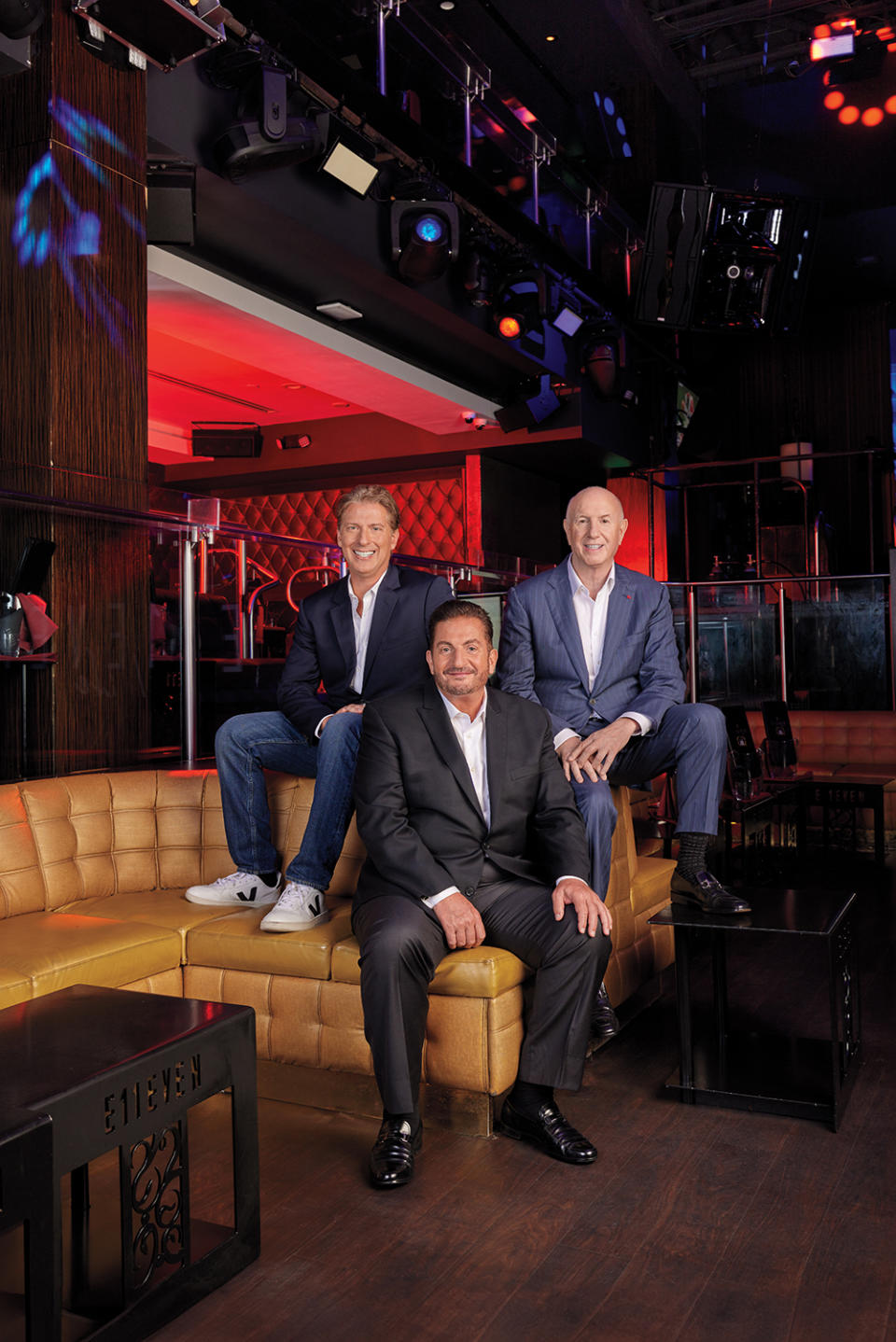
Roberts and Simkins, seduced by DeGori’s vision, brought him on board as a partner. Together they began developing plans, eventually gutting the building down to its exterior walls. (To retain the valuable 24-hour license, the club itself couldn’t get any bigger than its original 13,500 square feet.) Simkins told friends he believed it “would be one of the top-five most successful nightclubs in the United States after it opened.” They had their doubts.
“I’m spending all this money and I’m telling people this, and it’s in this neighborhood no one is really visiting—it was totally off the radar—and they all thought it would be out of business within a year,” Simkins says.
DeGori—who, despite the whole “Make it rain” thing, describes himself as reserved and behind-the-scenes—began assembling a dream team, a sort of Ocean’s Eleven heist crew to help him execute his plan for the club, luring high-powered operating partners, many from Las Vegas, with generous offers. “Moving bonus, signing bonus—I felt like a first-round draft pick,” says Gino LoPinto, a veteran of the after-hours-club scene in Vegas who came on as the gregarious front man in charge of marketing and talent booking. Daniel Solomon, who had helped Marquee, in Vegas, become the highest-grossing dance club in the country after rising to become the youngest general manager in the Tao group at 25, brought his deep contacts in the EDM scene. A VIP wrangler named Rob Crosoli made the move from Chicago. Even security chief Derick Henry, who had done protection work for Prince, the Jonas Brothers, and Mary J. Blige, got a piece of the business. “In a club like this, security is huge,” says DeGori.
As what would turn out to be a $44 million build-out continued, the owners and managing partners brainstormed ideas for a name. They wanted something open-ended, vague, hard to define. It wasn’t a classic dance club, concert venue, lounge, or cabaret theater. It was all of those things, and none of them.
The address was on 11th Street. DeGori, whose daughter had just turned 11, began seeing the number everywhere. “I really like it, because it says nothing,” he explains. They couldn’t trademark a number, but a distinctive spelling, E11even, would work. In the build-up to opening, they erected cryptic billboards across Miami. “Whatis11.com” followed by “It is what you think it is.” According to LoPinto, “We never explained what it was.”
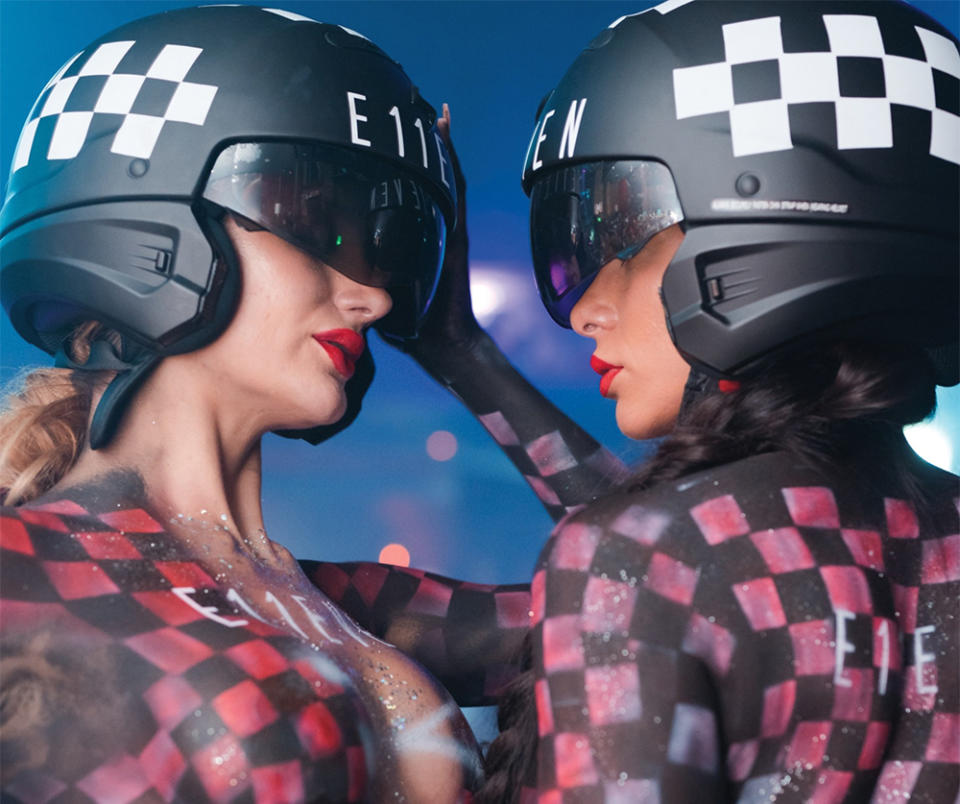
A pre-opening party, announced in the New York Post, doubled as a casting call for “60 sexy beach bodies” to appear in the Entourage movie—the film’s writer-director, Doug Ellin, was an old friend of Roberts’s. Invitations to other launch festivities, sent to several hundred VIPs, arrived in black boxes that played opera music when opened. Inside was a gold mask and a silver key to the club. “We sent one to Steve Wynn, to Trump, to a lot of people we knew wouldn’t come,” says LoPinto. Another list, of people more likely to show up and spend money, received an American Express–style black card loaded with $11,000 in credit to be used during the club’s first year in business.
E11even, billed as the “world’s first and only 24/7 Ultraclub,” was originally open nonstop seven days a week. (Hours were later curtailed by the pandemic, and now the club is open around the clock from only Wednesday to Monday.) The first few months were a struggle. “We were bleeding money,” says Roberts, “and then all of a sudden, it just started clicking.” Soon, celebrities began showing up. Leonardo DiCaprio made an early appearance. One night, Miley Cyrus jumped onto the pole in the middle of the pit. Idris Elba moonlighted in the DJ booth.
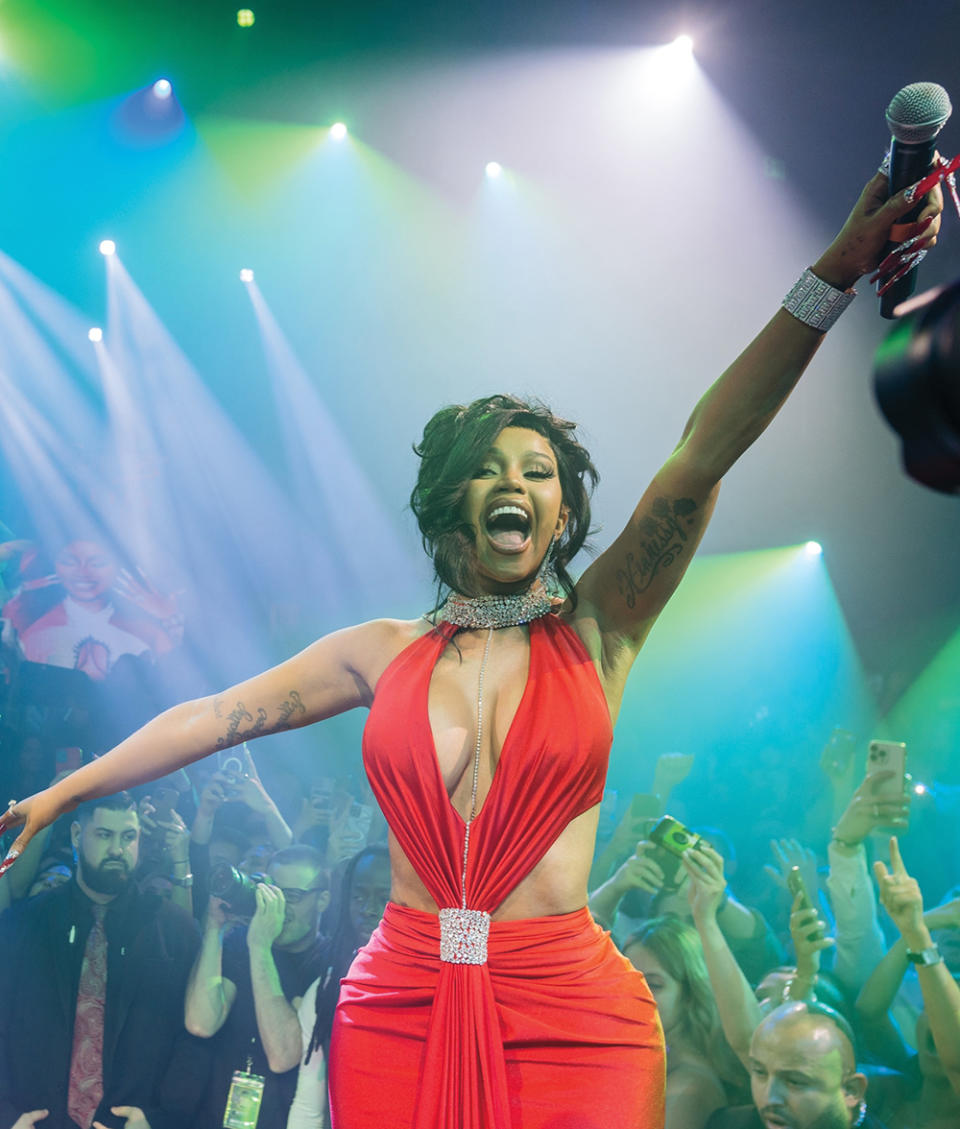
After Usher performed during the club’s first New Year’s Eve, E11even began booking some of the biggest names in hip-hop and electronic music, from Diplo to DJ Marshmello, Cardi B. to Snoop Dogg. Drake, who rang in the New Year in 2016, was the first artist to perform in the pit, surrounded by fans, pioneering the up-close-and-personal staging that has since become a hallmark of E11even at its wildest. (Altogether, Drake has played the club seven times.)
For the first few years, as the business’s fortunes began soaring, Roberts and Simkins remained mostly hands-off—more landlords than operators. Simkins, active in the civic affairs of his Miami Beach community, worried about the reputational risk of attaching his name to the club and the potential strain on his marriage. His wife, Nikki, who’d been his high-school sweetheart, “was freaked out,” he says. “It was one thing to buy it and lease it, which she was on board for, but this shift into partnering on the business was heavy for her. So certain promises were made… that I would only go to the club with her, and that was the rule for the first six years.”
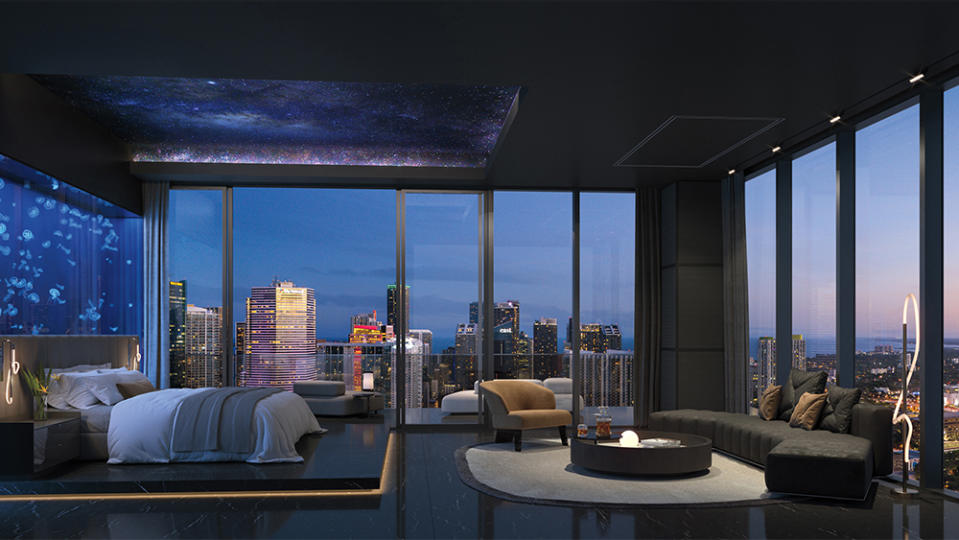
But as the cult of E11even soared, the stigma soon faded. “People were connecting emotionally with the brand, superfans were developing,” Simkins says. Eventually Nikki, a former diamond dealer, took on a role in the business herself, helping to launch the club’s vodka, produced in Florida under the E11even label, as CEO of the brand’s spin-off company.
The E11even management team, always quick to capitalize on new trends, jumped on the cryptocurrency craze early on, as Bitcoin mania engulfed Miami during the rise and fall of Sam Bankman-Fried’s house-of-cards exchange, FTX. E11even became the first nightclub in the country to accept Bitcoin. During Miami’s inaugural Bitcoin Conference, the club was often packed with big spenders flashing their crypto wallets. E11even even sold a special diamond-encrusted Bitcoin hat for $50,000.
In late 2021, the company spent nearly $400,000 acquiring a Bored Ape Yacht Club NFT—No. 11, of course. (The value of Bored Ape NFTs has since plummeted.) E11even’s Ape became the new mascot and the launching pad for a label, E11even Music, run by LoPinto. (It later released a track from a new EDM artist, 11Ape, an in-house creation who performs anonymously wearing a Bored Ape mask.) In the spring of 2022, the club released its own collection of 1,111 NFTs. Buyers were granted membership in the E11even Captain’s Club and special access to the facilities, among other perks, for 3 ETH (about $7,900 at the time).
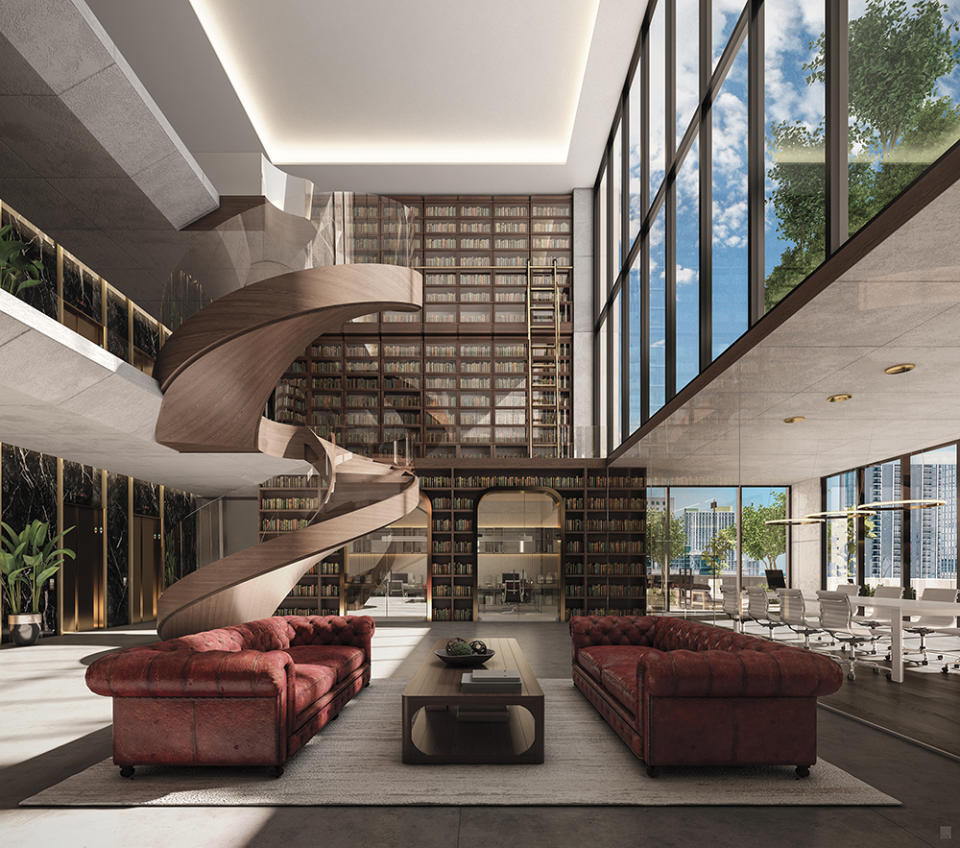
The halo effect of an unforgettable evening may help explain why so many of the club’s business partnerships have succeeded. Real-estate developer Ryan Shear, principal of PMG, which has built many condo towers in Miami and New York, was having a big night out at E11even a few years ago when he asked to meet Roberts, who was seated upstairs at his usual table overlooking the pit. Soon they were tossing around ideas for an E11even high-rise on the land Roberts and Simkins owned across the street. “We’d kill it,” said Roberts, selling the proposal hard.
It’s many different things to many different people. To explain how it works together—you can’t do it.
– Dennis DeGori
A few meetings later, Simkins and DeGori were in on the deal. Soon the club’s managing partners also signed on, enthusiastic about expanding the debauched spirit of E11even to a much bigger platform. “There’s not really a Vegas-style property in Miami—great beach club, great spa, great food and beverage offerings, 24-hour lobby bar,” says LoPinto of the hybrid-condo-hotel plan.
The first units went on sale in January 2021, a year and a half before a foundation was poured. All were sold fully furnished, so they could function as hotel rooms when not in use by their owners. A few deep-pocketed E11even fans bought up entire floors. Prospective buyers were tantalized by a whole set of perks, including access to a beach club on South Beach, about a 20-minute drive away, and to the tower’s many amenities, among them a 10,000-square-foot spa and wellness studio offering Ayurvedic treatments designed by Deepak Chopra (his first residential project), a cigar club, and a restaurant. The 449-unit tower, containing everything from $300,000 studios to $10 million penthouses, sold out in six months.
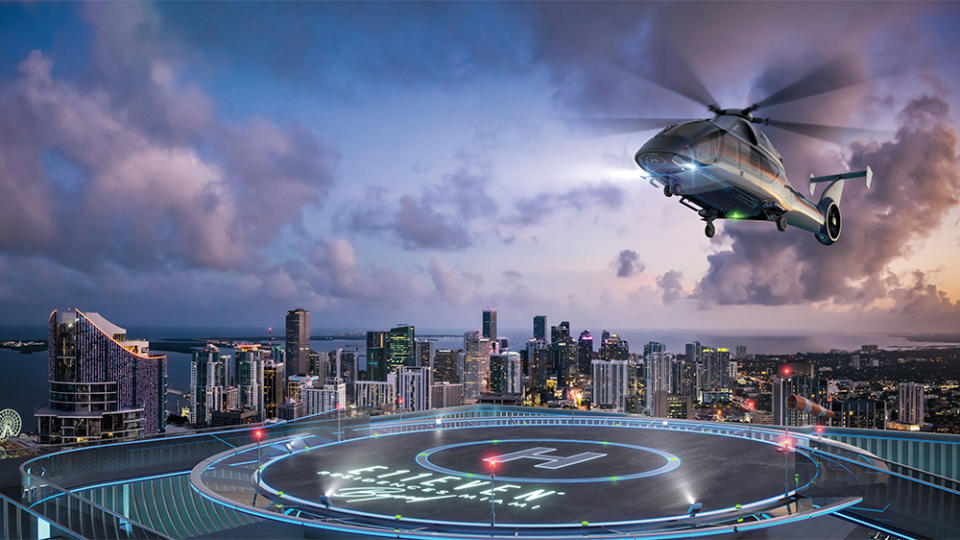
A second tower hit the market in late 2021, with plans for condos, a private members’ club, and a helipad on top. Sibling influencers Jake and Logan Paul both reportedly bought penthouse units, with listing prices of $20.5 million apiece, off-plan. A third tower went on sale a few months later. A fourth isn’t out of the question, says Simkins, once the last one sells out.
“Come back in a couple of years—you’re not going to believe your eyes,” says Roberts, a born salesman, of the partners’ plans to transform the area surrounding the club into one massive brand extension. Recently, they have started referring to it as District E11even. “This is a whole new city,” he says. “This will be the most famous entertainment street in the world when we’re done with it.
Sign up for Robb Report's Newsletter. For the latest news, follow us on Facebook, Twitter, and Instagram.

